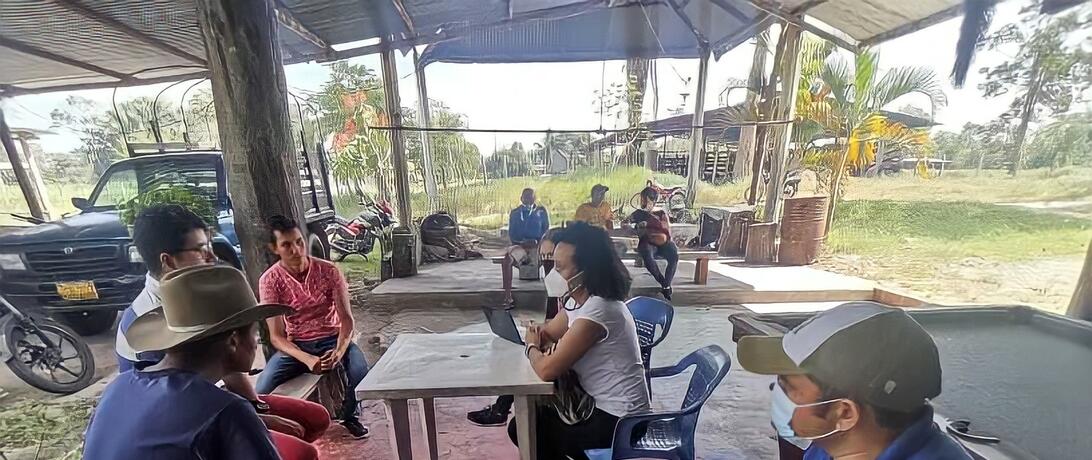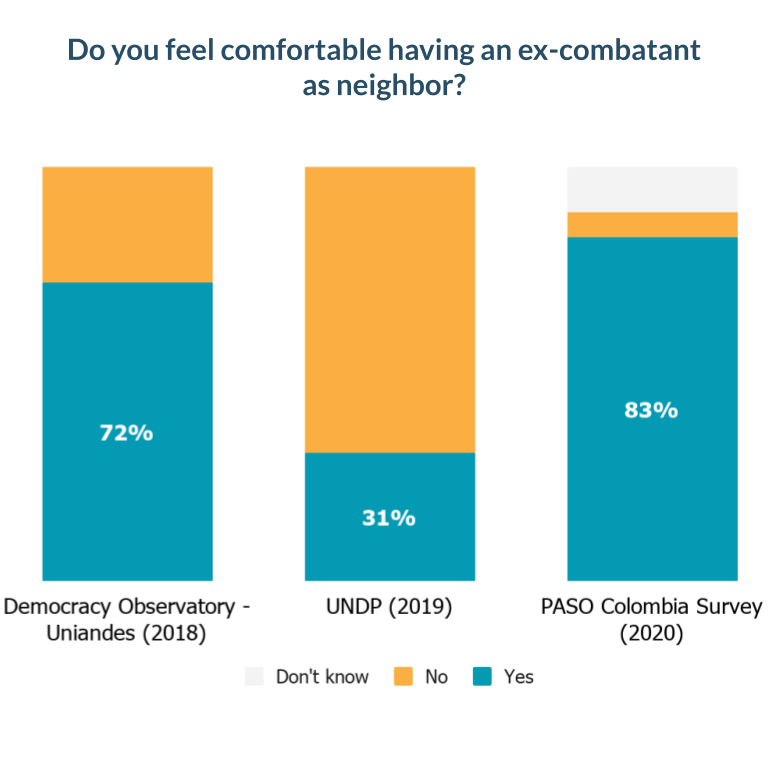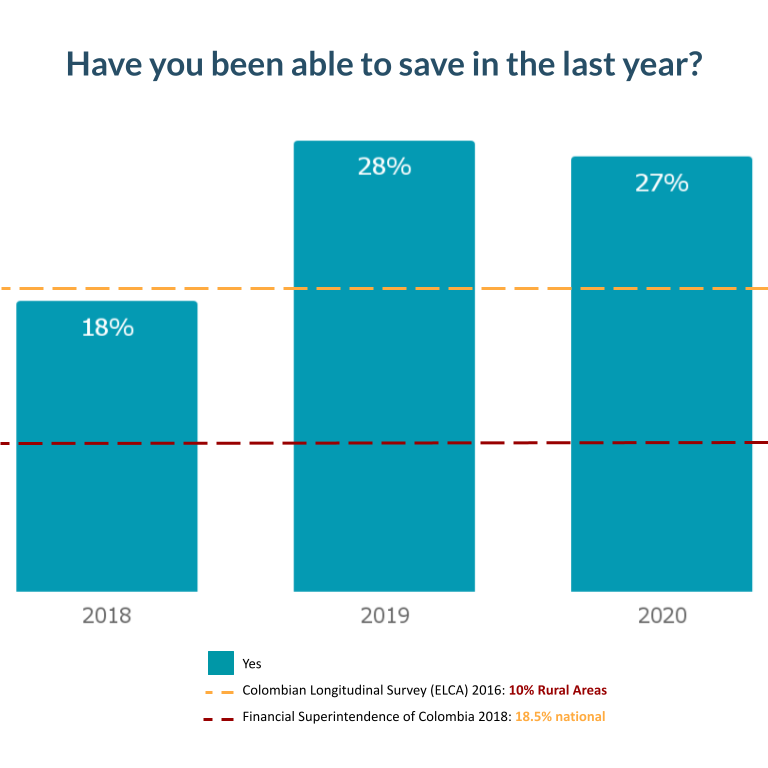
For three consecutive years PASO Colombia has conducted an annual survey among campesino (rural peasants) and reincorporated communities taking part in Rural Alternative Schools (ERAs) throughout the country.
For three consecutive years —2018, 2019 and 2020— PASO Colombia has conducted an annual survey among campesino (rural peasants) and reincorporated communities taking part in Rural Alternative Schools (ERAs) throughout the country. In the first year, 186 surveys were conducted, covering 6 ERAs, and in 2020, 17 locations in the country were covered with 586 respondents. This exercise, conducted and supervised by the independent firm Cifras y Conceptos, has allowed PASO to monitor the impact of its model over the years and make data-driven decisions.
Recent results show a positive evolution that shows how the ERAs contribute to the building of trust among communities, reincorporated persons and allies in the territory, as well as to the economic sustainability of the collective productive projects developed there.
To help with interpreting the data, in some cases it has been contrasted with information collected by other institutions, such as universities and national entities. A detailed analysis of the historical results will be published soon. In the meantime, it is worth highlighting some key points.
ERAs enable trust and community building
Through collaborative work and the implementation of productive projects that promote territorial development, Rural Alternative Schools have helped to build bonds of trust between ex-combatants and the communities that have hosted them. A sign of this is that 83% of campesino communities say they feel comfortable having an ex-combatant in the reincorporation process as a neighbor, while other institutions found this figure ranges from 31% to 72% in other similar places in the country (see chart).

In a two-way interpretation, the results suggest that these confidence levels impact the sustainability projections of productive projects. Half of the ex-combatants said they were part of productive projects in cooperation with communities, and almost all of them expressed a desire to continue doing so in the future. Similarly, most community members said they participated in these collective projects, and 70% of them want to continue with them in the future.
ERAs encourage formalization and economic sustainability
The productive dynamics of ERAs have made it easier for participants to generate an income, organized, among others, under the formal figure of cooperatives. 94% of the ex-combatants and 67% of the community’s participants are members of these cooperatives. With 84% of respondents considering ERAs as a good option for economic reincorporation, the survey suggests that cohesion around production in these spaces is increasing, positively affecting the livelihoods of their participants.
Particularly, the results show that the saving capacity of ERA participants has been increasing since 2018. By 2020 it was almost three times higher than in rural areas with similar characteristics, such as PDET zones. According to the ELCA survey of the University of Los Andes only 10% of the rural population is able to save, while more than 25% of ERA members —especially the reincorporated population— said they have saved in the last two years, even with the challenges related to the COVID-19 pandemic.

The ERAs help communities in these territories to have a better quality of life, as a result of the joint effort with public, private and international partners to improve production practices, formalize the rural economy and integrate it with the private sector.
Scaling up: from reincorporation process to territorial development
From 2018 to 2020, PASO Colombia tripled the number of operating ERAs and substantially increased the individuals benefiting from them. By 2020, four years after the signing of the Havana Peace Agreements, 70% of the ex-combatants participating in the ERAs said they were optimistic about the prospects of the reincorporation process. 78% of them describe as very good the technical assistance provided there by PASO’s agricultural technicians, while 76% of the community thinks the same. 65% of the participants believe that what they have learned in ERAs is useful and they apply it in their endeavors.
The strategy with which PASO Colombia faced the difficulties related to the COVID-19 pandemic strengthened communities' confidence in the program, reaching an historical high of 88% during 2020. The strategy combined training in the practical use of digital tools with ongoing accompaniment on the field.
This data will be shared with the ERA participants to elucidate their perceptions and lessons learned for the future. Based on three-year empirical data, PASO Colombia, local communities, and its partners continue to develop mechanisms to advance in the reincorporation process and a sustainable territorial development in rural Colombia, and thus peace.
The practical usefulness of the model for the economic reincorporation process, its positive impact on the development of rural communities, as well as its flexibility to face unforeseen situations such as the pandemic, have led PASO and its partners to consider a strategy of scaling up the most successful ERAs in the country, expanding their scope of action, to take advantage of their potential to promote the sustainable development of the territories in which they are located.
If you are interested in knowing more about PASO Colombia and the survey data, please contact us by writing to [email protected].
Article Details
Published
Topic
Program
Content Type
News